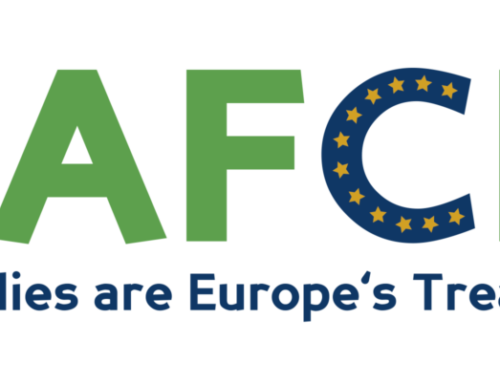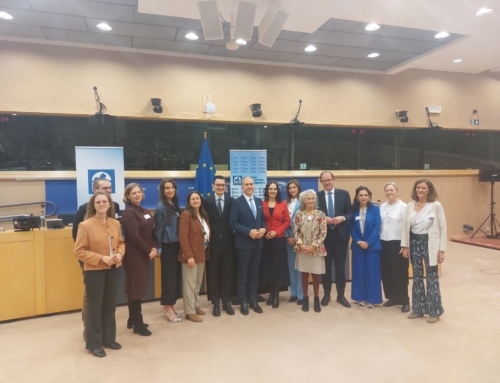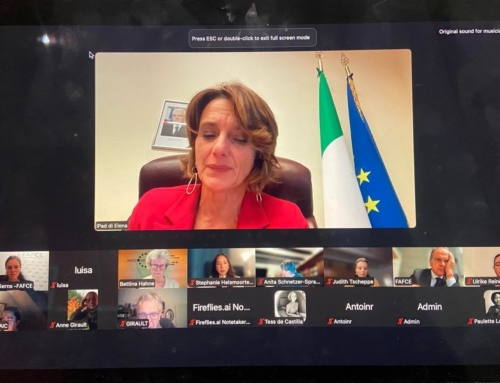Brussels, 5th June 2024
FAFCE has developed a policy toolkit for elected Members of the European Parliament and EU institutions for the new legislative period, starting after this weekend elections (6th-9th June) all over EU Member States. More than 400 million Europeans will have the opportunity to vote for their MEPs. As stated in its latest Spring Resolution, FAFCE invites incoming parliamentarians to prioritise families in their policy-making for this new legislature.
The non-exhaustive list contains five key policy areas:
1. Demography
FAFCE invites candidates to continue the work of the current Commissioner Vice-Presidency for Democracy and Demography, tasked with grappling with the demographic transition.
The Federation also encourages the reconduction of a cross-party parliamentary intergroup on “demographic challenges, work-family balance and next generations”.
FAFCE President Vincenzo Bassi says: “While this election is taking place towards the start of summer, we are freezing into a demographic winter. Birthrates have plummeted and the pandemic of loneliness has spread across the continent. We need our European institutions to dedicate resources and human capital to understanding its root causes, as well as investing in a demographic spring for the continent. Without intergenerational solidarity, we can’t begin to meet the many challenges in front of us. This requires families and children to be prioritised, without whom there is no future.”
2. Families as an investment
FAFCE urges candidates to consider EU investments in family policies as strategically investing in the future of Europe. The budget that Member States and, indirectly, the EU invest in family policies shall be considered as investment in human capital. A reflection of the Maastricht criteria is needed at the EU level.
3. Work-family balance
FAFCE calls for candidates to make employment work for families. It is currently within the competencies of the EU to improve living and employment conditions. FAFCE encourages candidates to rethink the core four Directives which currently regulate work-life balance to have a more family-friendly framework. It is worth recalling that SMEs are the basis of our economic tissue and state wealth and autonomy.
On this regard, the President of FAFCE notes that: “It is possible to have a Europe where we workers are productive and also are able to enjoy valuable family time. Mothers and fathers need a balance of work and family life, for the sake of their children, themselves, and wider society. Pregnant mothers, in particular, should be granted legal protection and given the possibility to put their creativity and entrepreneurship to practice as well as motherhood. The right to disconnect must also be promoted, establishing Sunday as a common day of rest.”
4. The protection of children
Digital safety, particularly for minors, has wide support across the political spectrum. FAFCE expresses the need for candidates to support and promote a European Parliament campaign to show the risks of exposure of children to pornography. The Federation also recommends action on the Shield Platform’s proposals which include detailed scientific studies, public health policies, and spreading awareness of the deep damage of pornography in our societies.
5. Integral ecology
The family is the antidote to the culture of waste and unrestrained consumption. Families can be empowered to educate on the environment and live sustainably. Based on the service of the common good and the respect of human dignity, families should be at the centre of the ecological transition. FAFCE warns against the cost of no-family in this context.
The Federation will work for more cooperation between the European stakeholders and family associations, the protection of the Creation in line with the protection of families and future generations, and that the legislature prioritises resolving the cost of living crisis that impacts integral ecology as well as economic health.
Echoing the latest FAFCE’s Resolution, on Integral human ecology needs at its core the recognition of the family, the President of FAFCE concludes: “The problem is not the children but consumerism. There is no ecology without the person; no person without the family. Therefore, there is no ecology without the families and communities of families at the heart of the transition”.









